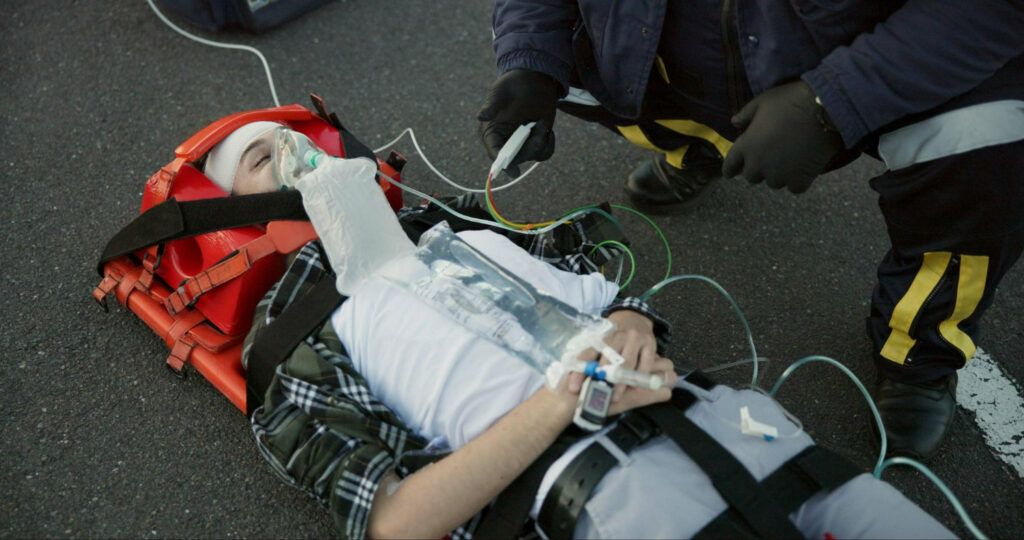If you or someone you know has taken the medication Depo Provera and has developed an intracranial meningioma, you may be eligible to participate in this lawsuit. If you have questions or would like to participate, don’t hesitate to get in touch with us at Freese and Goss. Please also note that none of this content should be construed as medical advice or as directions concerning your medical care, and is only meant to report publicly available information and inform you about your legal rights.
Explaining the Link Between Depo-Provera and Intracranial Meningioma
Recent high-level clinical studies have shed light on a possible connection between the use of the contraceptive medication Depo-Provera and an increased risk of developing an intracranial meningioma, a type of brain tumor.
This blog sheds light on this complex relationship between Depo Provera and intracranial meningioma and describes your legal options.
What is Depo-Provera?
Depo-Provera is a prescription hormonal contraceptive medication that has been FDA-approved since 1992. Its active ingredient is medroxyprogesterone acetate, a synthetic form of the hormone progesterone called “progestin.”
Depo Provera is a medication that is injected into a muscle, usually the shoulder or hip. One of its important characteristics is that it is injected once every three months. It is usually administered in a doctor’s office, but some women inject themselves or have a relative or medical professional inject the medication at home.
There is also an option called “Depo-SubQ Provera 104” which is designed to be self-administered at home and has been available since 2004. This medication is injected subcutaneously, instead of into the muscle.
Featured Headlines
Check out our latest post
Intracranial Meningioma: A Brief Overview
Intracranial meningioma is a type of brain tumor that develops from the meninges, the protective membranes covering the brain and spinal cord. Though most meningiomas grow slowly, their presence within the confined space of the skull can cause serious health problems.
Since the skull is a fixed and rigid space, any space-filling lesion inside the skull can be extremely dangerous. These masses, tumors, or cancers can compress other structures, including critical nerves, blood vessels, or the brain tissue itself.
The tumor itself, or the resulting pressure, can cause injuries including seizures, blindness, vision problems, hearing loss, stroke, paralysis, and other neurologic symptoms, depending on their size and location.
In some cases, the additional pressure and/or mass can even cause death. In addition, tumor removal can require surgery that requires incision and dissection through the head and neck. Surgery also requires a craniectomy or craniotomy, which is the removal of a part of your skull.
Based on the tumor location, some tumors may need to be approached through your nose, or even require separation of the jaw bones to safely approach the tumor. Not all tumors can be removed entirely, posing a risk for continued growth and the costs of continued monitoring.
Tumors might also require radiation therapy and/or chemotherapy. Thus, not only are meningioma tumors themselves dangerous, but the techniques used to treat them are also risky.
Depo-Provera and Meningioma: Connecting the Dots
The relationship between hormones and meningiomas has been recognized for over a hundred years. However, data that shows a relationship between modern medicines and meningiomas is recent, including findings linking Depo-Provera and intracranial meningioma.
As early as the 1920s, Harvey Cushing, considered to be the first neurosurgeon in the United States, noted a relationship between hormones and meningiomas. In the 1980s, immunohistochemical and genetic analysis of these tumors demonstrated that 80-90% of these tumors have receptors for progesterone on the tumor’s cell surface.
At the time, outcomes analysis of hormonal contraception did not show a consistent association between contraceptive use and tumor growth.
Starting in the 2000s, clinical data started to show a relationship between certain progestins (i.e., synthetic progesterone-like molecules) and meningiomas. A medication called cyproterone acetate demonstrated a nineteen-fold increased risk in the development of intracranial meningiomas, resulting in its removal from the market in the United States.
Second, medications that antagonize the actions of progesterone found application in the treatment of meningiomas. Third, medical societies started to warn against the use of progestins in patients with a history of meningiomas.
Peer-reviewed studies published since 2020 have started to suggest an association between Depo-Provera and Intracranial Meningioma, specifically highlighting medroxyprogesterone (Depo Provera) and the risk of developing an intracranial meningioma. The core of this concern lies in the hormone progesterone, or rather its synthetic counterpart found in Depo-Provera.
A pivotal study in March 2024 examined the risk of developing meningioma while taking specific progestins. What made this study unique was that it did not examine all contraceptives together, but rather examined the specific contraceptive medications individually.
Of great concern, this study found that Depo-Provera (i.e., medroxyprogesterone acetate) was associated with a five-fold increased risk of developing an intracranial meningioma. The findings indicated a statistically significant increase in intracranial meningioma cases among users of the contraceptive shot, especially in those who had been using Depo-Provera for longer than one year.
Understanding the Implications / What this means for You
While these findings shed light on a critical area of concern, it is essential to navigate this information with nuance and caution. First, it is important to remember that intracranial meningiomas are relatively rare, and the increase in risk, while significant, does not imply a high absolute risk.
However, for individuals who have used Depo Provera or Depo Provera SC (i.e., the self-administered subcutaneous form of Depo Provera approved by the FDA in 2004) and who have developed an intracranial meningioma, you may be eligible to file a claim for damages against the manufacturers of Depo Provera.
Individuals who are eligible for this specific lawsuit include:
- Women who are alive or dead.
- Women who used Depo Provera while in the United States, and are U.S. citizens.
- Women who used Depo Provera AFTER 1992, and/or Depo-SubQ Provera 104 AFTER 2004.
- Women who have been diagnosed with intracranial meningioma, a specific type of brain tumor, AT LEAST one year AFTER starting Depo Provera.
- Women who are not already represented by an attorney in a case involving the use of Depo Provera.
If you are eligible to participate in this lawsuit, we are here to help you. The information that you will need to participate includes:
- Your full name, date of birth, and social security number.
- Your phone number, mailing address, and email address.
- Date(s) of Depo Provera use, type of Depo Provera use (intramuscular or subcutaneous), site of injection, and use of brand name Depo Provera or generic medication.
- Names and addresses of all medical providers that prescribed Depo Provera for you, and/or injected you with the medication.
- Names and addresses of all pharmacies where you may have filled a prescription of Depo Provera for yourself.
- Names and addresses of all providers and/or facilities who diagnosed you with an intracranial meningioma.
- Names and addresses of all providers and/or facilities who treated you for an intracranial meningioma, including surgery, radiation therapy, chemotherapy, or other medication, or observation only.
- Names and addresses of all providers and/or facilities who treated you for complications of your intracranial meningioma and/or complications of treatment for your intracranial meningioma. These complications can include, but are not limited to: blindness; paralysis; numbness; hearing loss; headaches; concentration difficulties; disability; lost wages, and/or lost time from work.
Moving Forward
If you or someone you know has taken the medication Depo Provera and has developed an intracranial meningioma, you may be eligible to participate in this lawsuit. This lawsuit is not a class action but is rather an individual lawsuit filed on your behalf.
If you have questions or would like to participate, please get in touch with us at Freese and Goss. Time is of the essence in this lawsuit, so participating as soon as possible is essential to obtain your best outcome.
Please also note that none of this content is offered or should be construed as medical advice or as directions concerning your medical care. It is only meant to report publicly available information and inform you about your legal rights.




